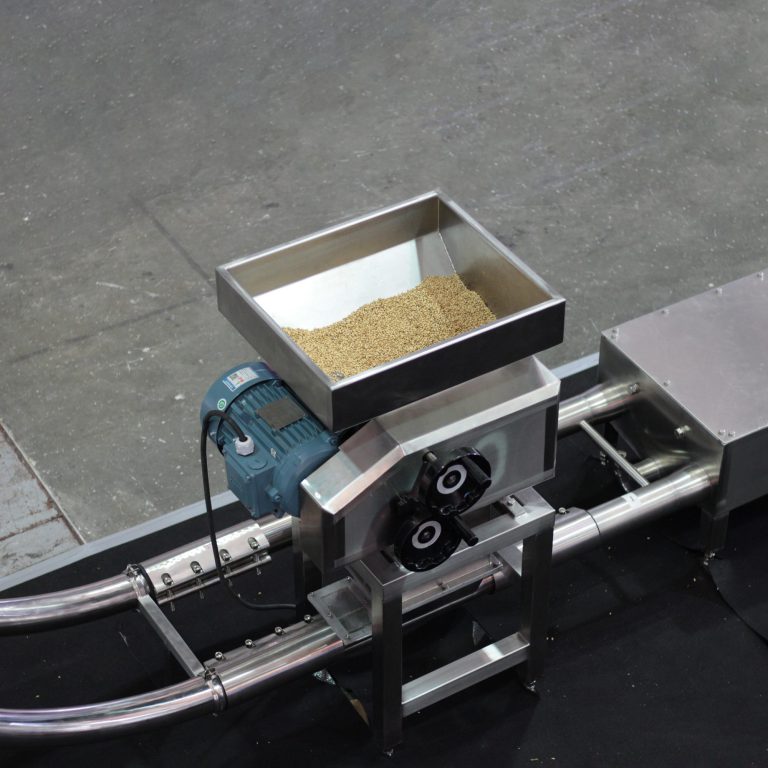Introduction

Are you a homebrewer looking to take your craft beer to the next level? A quality beer grain mill is an essential tool for achieving consistent, flavorful brews. In this comprehensive guide, we’ll explore the world of beer grain mills, delve into the factors to consider when making a purchase, and provide recommendations for the best options available on the market.
The importance of a good grain mill cannot be overstated. A well-crushed grain bill is crucial for efficient mashing, which directly impacts the flavor, aroma, and overall quality of your beer. By investing in a reliable grain mill, you’re setting yourself up for success in your homebrewing endeavors.
Understanding Beer Grain Mills
A beer grain mill is a specialized piece of equipment used to crush malted grains into a consistent grist, which is necessary for the mashing process in brewing. By crushing the grains, you expose the starches and proteins, allowing for efficient conversion into fermentable sugars.
The ideal crush size for grain is a balance between exposing the inner contents and preventing the grains from becoming too fine. A coarse crush can hinder the extraction of sugars, while an overly fine crush can lead to a gummy mash that is difficult to filter.
Why Use a Beer Grain Mill?
- Consistency: A grain mill ensures that your grains are crushed to a uniform size, resulting in more consistent wort and a higher quality finished beer.
- Efficiency: Pre-crushed grains can become oxidized and lose flavor. A fresh grind from a grain mill provides optimal flavor extraction.
- Control: A grain mill gives you complete control over the crush size, allowing you to adjust it based on the style of beer you’re brewing.
For example, if you’re brewing a stout, which requires a slightly coarser crush to allow for more complex flavors, a grain mill with adjustable settings would be ideal. On the other hand, a lager, which typically requires a finer crush for efficient sugar extraction, would benefit from a mill with a more precise adjustment range.
Factors to Consider When Choosing a Beer Grain Mill
- Capacity: Consider the size of your brew batches and the frequency of your brewing to determine the appropriate capacity.
- Crush Size Adjustment: The ability to adjust the crush size is essential for different grain types and beer styles.
- Motor Power: A powerful motor ensures efficient grinding, especially for larger batches or harder grains.
- Durability: Look for a grain mill constructed from high-quality materials that can withstand frequent use.
- Noise Level: If you brew indoors, a quieter grain mill is preferable.
- Ease of Cleaning: A grain mill that is easy to disassemble and clean will save you time and effort.
In addition to these factors, consider your personal preferences and budget. Some homebrewers may prioritize features like a digital display for precise crush size adjustments, while others may be more concerned about the overall cost.
Types of Beer Grain Mills
- Roller Mills: These mills use two adjustable rollers to crush the grains, providing precise control over the crush size.
- Burr Mills: Burr mills feature conical or flat burrs that grind the grains between two surfaces, resulting in a consistent and fine crush.
- Hammer Mills: Hammer mills use a series of hammers to strike the grains, producing a coarser crush.
Each type of grain mill has its own advantages and disadvantages. Roller mills are often preferred for their precision and versatility, while burr mills are known for their consistency and fine grinds. Hammer mills are typically used for coarser grinds and are less common in homebrewing.
Factors to Consider When Choosing a Beer Grain Mill
| Factor | Description | Importance |
|---|---|---|
| Capacity | The amount of grain the mill can process at once. | Determines the size of your brew batches. |
| Crush Size Adjustment | The ability to adjust the coarseness or fineness of the crushed grain. | Essential for different grain types and beer styles. |
| Motor Power | The strength of the motor used to power the mill. | Affects the efficiency and speed of grinding. |
| Durability | The quality of materials used in the construction of the mill. | Ensures the mill will last for years. |
| Noise Level | The amount of noise the mill produces during operation. | Important if you brew indoors. |
| Ease of Cleaning | How easy it is to disassemble and clean the mill. | Saves time and effort. |
| Price | The cost of the grain mill. | Consider your budget and the features you need. |
How to Use a Beer Grain Mill

Prepare the Grain: Sort and de-stone your grains before milling.
Adjust the Crush Size: Set the crush size according to the recipe requirements.
Mill the Grains: Feed the grains into the hopper and allow the mill to crush them.
Clean the Mill: Disassemble and clean the mill thoroughly after each use.
Proper maintenance is essential for the longevity of your grain mill. Regular cleaning and lubrication will help prevent clogs and ensure optimal performance.
Conclusion
Investing in a quality beer grain mill is a worthwhile investment for any homebrewer. By understanding the different types of mills and the factors to consider, you can choose the perfect tool to enhance your brewing experience. Remember, a consistent crush is key to producing consistently great beer.
FAQ
Can I use a coffee grinder for brewing?
While a coffee grinder can be used in a pinch, it may not provide the consistent crush size required for brewing.
How often should I replace the burrs in my grain mill?
The lifespan of burrs varies depending on usage and the hardness of the grains. Most burrs can last for several years with proper care.
What is the ideal crush size for pale malt?
The ideal crush size for pale malt is typically between .030″ and .040″.

